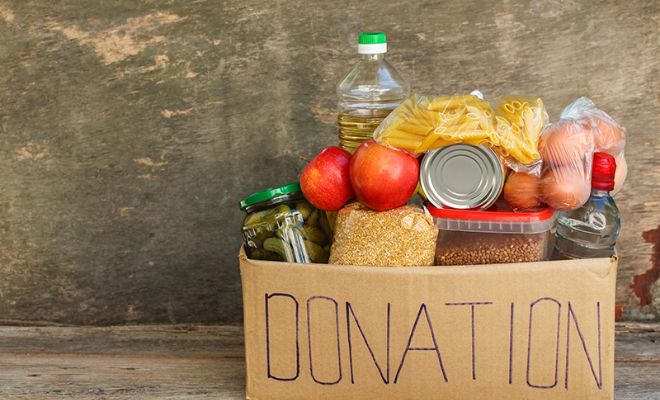Between Hope and Despair: The High Cost of Living

Food prices have soared to their highest rates in almost half a century according to Statistics Canada, while average housing rent in Canada has surpassed its all-time high according to the latest national rent report from Rentals.ca and Urbanation. It is not a surprise that the cost of living and housing affordability are key issues for voters with the upcoming 2025 Canadian federal elections. On the ground, the number of people using Canadian food banks has grown by nearly 80% since 2019, a Hunger Count report showed – with 17% of their clients having jobs! Whether someone is living pay-cheque to pay-cheque or just not having enough money to make ends meet – it is inevitable that the current economic situation can lead to depression, anxiety and overwhelming stress for many.
The reality is we Muslims are not immune to the effects of the catastrophes and calamities brought on us when living under this secular capitalist system in Canada and elsewhere in the Muslim lands. As Muslims we need to be mindful of how the lack of job opportunities, inflated costs of basic necessities and the chaotic fluctuations in the value of money can leave us with feelings of deep frustration and a growing sense of despair.
Without the correct understanding of the Islamic viewpoint on dealing with financial difficulty and uncertainty, these can have a detrimental impact on one’s Imaan. Therefore, we need to ask ourselves: How does Islam teach us to deal with financial hardship and uncertainty?
Poverty and Desperation
In the Qur’an, as well as the ahadith, the relationship with being in poverty and doing immoral acts out of desperation can be seen in many places. Allah (swt) says:
“Surely your Lord gives abundant or limited provisions to whoever He wills. He is certainly All-Aware, All-Seeing of His servants. Do not kill your children for fear of poverty. We provide for them and for you. Surely killing them is a heinous sin.” [TMQ 17: 30-31]
Ibn Kathir mentions in his Tafseer that: “The people of Jahiliyyah would not allow their daughters to inherit from them, and some would even kill their daughters lest they make them poorer (in the future). This is why Allah mentions the children’s provision first.”
The people of Jahiliyyah would be consumed by the financial impact of having to support their children, so much so that it led some to kill their own children out of fear and desperation as they would anticipate poverty due to the expenses of having to support a new child. Under the Capitalist system, in
which wealth is monopolized and circulated amongst the rich, the poor are exploited and deceived. The bulk of the people in society are consumed with paying off debts, not having as many children due to fear of expenses or continuing to work for years or even decades past their intended retirement age, driven by the false notion of “financial security.”
Moreover, when a person is under financial strain, they put them in a desperate position where they may think that they need to resort to haram means to gain their provisions. Allah (swt) says in Surah Baqarah:
“Satan threatens you with poverty and orders you to immorality, while Allah promises you forgiveness from Him and bounty. And Allah is all-Encompassing and all-Knowing.” [TMQ 2:268]
The reality of financial insecurity is so significant that RasulAllah (saw) himself used to supplicate from being in debt. It was narrated from ‘Aa’ishah (ra) that RasulAllah (saw) used to say in his prayer:
“O Allah, I seek refuge with You from sin and heavy debt” Someone said to him: “How often do you seek refuge from heavy debt?” He said: “When a man gets into debt, he speaks and tells lies, and he makes a promise and breaks it.” [al-Bukhaari (832) and Muslim (589)]
Keeping the above narrations and ayaat in mind, the following hadith shows a connection between poverty and disbelief as well: Abu Sa’id Al-Khudry (ra) reports that Rasulullah (saw) once made the following du’a:
‘O Allah I seek refuge in You from disbelief and poverty.’ Someone enquired: ‘Are these two equal?’ The RasulAllah (saw) replied: ‘Yes.’ [Sahih Ibn Hibban (1026)]
Islam indeed acknowledges the crushing reality of living under debt, the mental anguish and distress of being in a state of poverty and the detrimental impact it has on one’s Imaan.
Rizq is in the Hands of Allah (swt)
Under the Capitalist way of life, people are cultured and taught that “we are masters of our destiny.” We have been told that prosperity and material success is a direct result of our own hard work, sacrifice and intelligence that will inevitably allow us to live the so-called “American Dream” or in our case, the “Canadian Dream.” Why then are there so many people today living the “Canadian Nightmare”, as the debate on housing and food prices rages on and many people are leaving Canada altogether or considering the idea?
This is because in Islam, contrary to the secular view of man as the provider and earner, a fundamental concept that a Muslim must internalize is that Rizq is in the hands of Allah (swt). One of the beautiful names of Allah (swt) is Al-Razzaaq: The Provider, The Providence, The Supplier, The Bestower of Sustenance. The One who creates all means of nourishment and subsistence. The One who provides everything that is needed. Allah (swt) says:
“Lo! Allah is that who gives livelihood, the Lord of unbreakable might.” [TMQ 51: 58]
“We provide for you.” [TMQ 6:151]
These ayaat clearly indicate that Allah (swt) is the Razzaq (Provider) and that Rizq is ascribed to Him alone – He provides to whom He wills, and this authority of provision is reserved for Him alone.
“And whosoever keeps his duty to Allah, Allah will make a way out for him. And He will provide for him from where he has no expectation.” [TMQ 65: 2-3]
In this ayah, Allah (swt) encourages us to partake in what Allah (swt) has provided for us, but reminds us to keep our duty to Him. Allah connects these 2 subjects and warns us not to allow the partaking in provision to give us permission to transgress any of His commands. Allah (swt) is also reminding us that the rizq we have, no matter how much we feel we might have “earned” it, is not from ourselves but has been provided by Allah (swt). When a Muslim carries on in this life with this understanding, they are able to withstand the trials of this life and be patient with the financial hardships that befall them.
Our Rizq is Fixed
Another crucial point to understanding rizq is that it is fixed in its amount; that is the rizq for each and every human has already been decreed by Allah (swt).
Ibn Mas’ud narrated that Allah’s Messenger (saw) said to his wife Umm Habiba: “Verily you have asked Allah about the duration of life already set, and the steps you would take, and the sustenance the share of which is fixed. Nothing will take place before its due time, and nothing will be deferred beyond when it is due.” [Muslim].
These two concepts from the Islamic aqeedah (belief) mark a believer as being distinct from the kafir. The believer’s belief that his wealth is provided by Allah (swt) is in conflict with the widely held belief that it is the individual through his own efforts or job who provides rizq for themselves. Secondly, this allocation is fixed and unchangeable despite our efforts to increase it. However, as Muslims, we are commanded to use all permissible means to earn a halal income. With this understanding in mind, how can a Muslim have despair in Allah’s bounties prepared for the muttaqeen? How beautiful is the statement of Allah (swt) when He says:
“Say, O My servants who have transgressed against themselves [by sinning], do not despair of the mercy of Allah. Indeed, Allah forgives all sins. Indeed, it is He who is the Forgiving, the Merciful.” [TMQ 39:53]
The Virtues of the Poor and the Needy
The Islamic point of view on wealth and dealing with financial hardship provides us with a unique viewpoint on life and teaches us that our purpose in this life is to seek the pleasure of Allah (swt). A major component of seeking Allah’s pleasure is by fulfilling our obligations and to perform the commands that He (swt) has expected from us irrespective of our financial status. The Muslim is expected to strive for his provisions irrespective of their situation as that remains an obligation.
While Islam does discourage extravagance and miserliness, Muslims should understand that attaining wealth is beyond our control, and neither is it a result of our own hard work or intelligence. Just like the wealthy have been tested with an abundance of wealth- how it was earned, what it was spent on and how much went to zakat and sadaqah from it, the ones who are poor are also commanded to be patient, resilient and always show gratitude to their Creator. Unlike the Capitalist system, which views the less fortunate as parasites of society, in Islam the poor have a very high status with Allah (swt). Abu Huraira reported: The Messenger of Allah, peace and blessings be upon him, said, “The poor Muslims will enter Paradise before the rich by half of a day, the length of which is like five hundred years.” [Sunan al-Tirmidhī 2354]
Islam Wages War on Poverty
Ultimately, in the Khilafah State, the Islamic economic system has made the circulation of wealth an obligation, and it has forbidden the restriction of such circulation to a certain group of people to the exclusion of others. Allah (swt) says:
“Lest it circulates solely among the wealthy from amongst you” [TMQ 59:7].
As long as Muslims continue to live under the man-made systems, Muslim will continue to be assailed from all fronts – economically, politically and spiritually. The despair faced by Muslims is the result of the false concepts about rizq being spread in society. Therefore, it is imperative that Muslims strive to work for the re-establishment of the Khilafah state, as we strive towards fulfilling our obligations that Allah (swt) has ordained for us.









